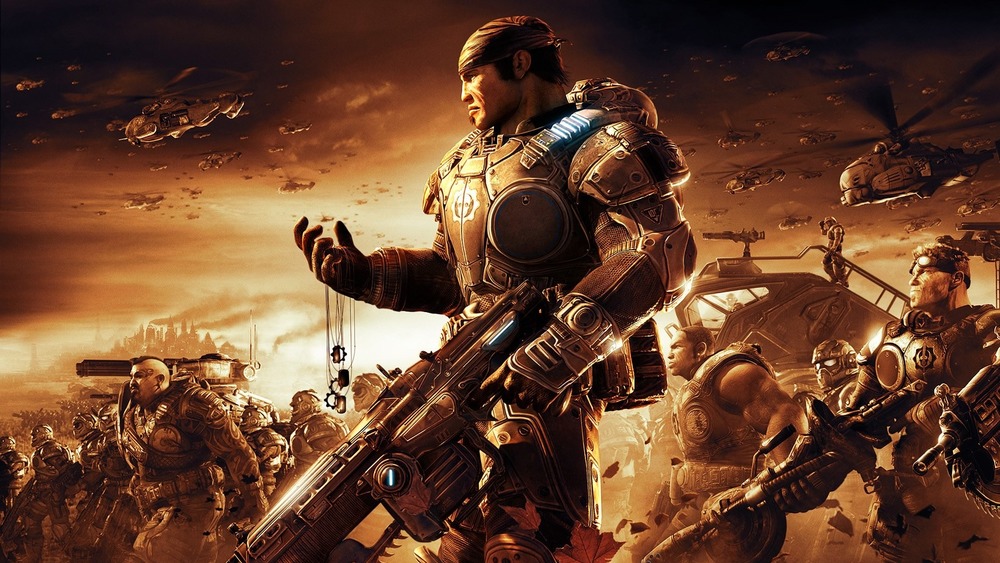The Real Reason Cliff Bleszinski Left Epic Games
Cliff Bleszinski, or CliffyB as he is known to his Twitter followers and fans around the world, was once one of the gaming industry's more recognizable figures. An up-and-coming developer in the '90s and 2000s, the former Epic Games designer abruptly left the company in 2012. However, while his initial reason for leaving the company involved development fatigue, it turns out there was more to the situation than meets the eye.
Although we don't hear too much from Cliff Bleszinski these days, the Gears of War lead designer eventually vocalized more factors that went into his decision to leave the company. In short, Bleszinski lost creative control. He stated that "a big Chinese company comes along and I had a chunk of ownership at Epic and they buy out 40 percent of it without any strings attached." When he would pitch an idea, he said many at Epic Games would dismiss it promptly.
Since Bleszinski's departure from the company, he started a studio of his own called Boss Key Productions, the developer behind both LawBreakers and Radical Heights, released in 2017 and 2018, respectively. Both turned out to be flops that fell short of Bleszinski's previous works at Epic Games.
Epic Games and the Gears of War franchise
Developer The Coalition has since been in charge of Cliff Bleszinski's darling Gears of War franchise. Cliff Bleszinski has offered his thoughts on the latest installments in the franchise, comparing Gears of War 4 to Star Wars: Episode VII – The Force Awakens. On the topic of Gears 5, Bleszinski confirmed a fan's assertion on Twitter that the Gears franchise had become "too woke."
2017's Fortnite has been Epic Games' sole development focus, in addition to the Epic Games Store, which launched in 2018. Fortnite instantly became a sensational phenomenon for Epic Games, buoying the battle royale genre and becoming a massive influence for the gaming industry overall. Its impacts can be seen in everything from melding mobile and console games closer together as well as nudging Sony toward a higher comfort level with the idea of cross-platform play, which they were previously against due to "money," according to ex-Sony Online Entertainment president John Smedley.


